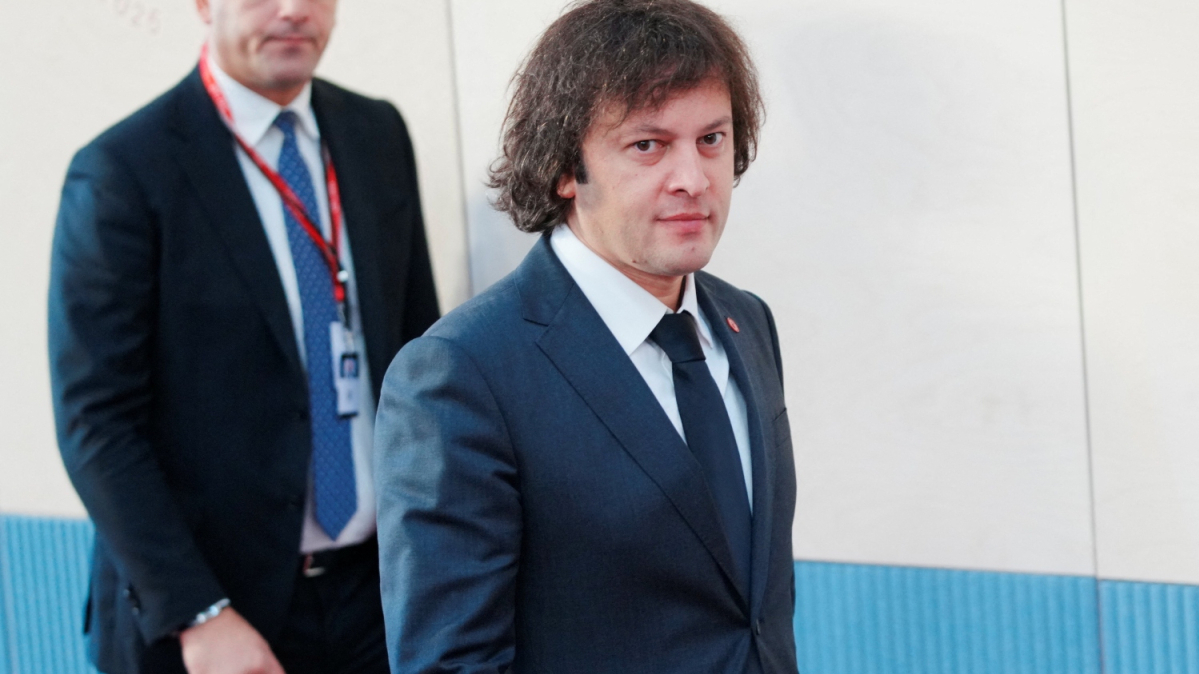live Trump cites Churchill in taunt at Starmer over Iran: All the latest news on the Iran strikes
U.S. President Donald Trump said the U.S. military has enough stockpiled weapons to fight wars 'forever' in a so...

Tensions between Brussels and Tbilisi are deepening following the European Commission’s latest enlargement report, which delivers one of the most critical assessments of Georgia’s progress toward European integration in recent years.
The document argues that the ruling Georgian Dream party’s policies are distancing the country from core European values, turning Georgia’s EU candidate status into a largely symbolic title.
Commissioner for Enlargement Marta Kos directly linked Georgia’s stalled reforms to the government’s actions, warning that the country’s political direction is moving it further from EU standards.
The response from Tbilisi was immediate and defiant. Senior Georgian Dream officials, including the Prime Minister, called the conclusions politically motivated and unjustified. While not surprised by the Commission’s tone, the government maintains that Georgia’s progress toward EU membership remains steady and credible.
Foreign Minister Maka Bochorishvili reiterated that Georgia continues to be one of the best-prepared candidate countries and expressed confidence that the European Union will reinvigorate its enlargement policy by 2030.
She described the report as out of touch with reality and emphasised that Georgia’s institutions are consistently aligning with European norms and legislation.
Despite the growing confrontation with Brussels and what Georgian officials describe as “political isolation,” the government insists that there is no threat to the country’s visa-free regime with the EU. Bochorishvili underscored that Georgia’s European course remains irreversible and that reforms will continue regardless of external criticism.
At the same time, the Foreign Minister defended the government’s measured stance on the Russia–Ukraine war.
She argued that Georgia’s balanced position reflects the approach of several EU and NATO member states that seek to avoid direct confrontation with Moscow.
According to Bochorishvili, Georgia’s support for Ukraine, both political and humanitarian has been consistent since 2022 but remains undervalued in Brussels and Kyiv.
Political analyst Nikola Miković, speaking to Anewz from Belgrade, assessed that Georgia’s limited prospects for EU membership are closely tied to its refusal to open what he described as a “second front” with Russia.
In his view, Tbilisi’s cautious policy has protected domestic stability but also reduced the likelihood of rapid advancement in the EU accession process.
Observers note that the latest European Commission report and the firm response from Tbilisi highlight a widening rift between the Georgian government and European institutions.
As both sides stand by their positions, the future of Georgia’s European trajectory and its credibility as an aspiring EU member remains uncertain.
The Kremlin is utilising the recent United States and Israeli military strikes on Iran to validate its ongoing war in Ukraine. Russian officials are pointing to the escalation in the Middle East as evidence that Western nations do not adhere to international rules.
Saudi Arabia’s state oil giant Saudi Aramco closed its Ras Tanura refinery on Monday following an Iranian drone strike, an industry source told Reuters as Tehran retaliated across the Gulf after a U.S.-Israeli attack on Iranian targets over the weekend.
The Middle East crisis intensifies after the deadly attack on the compound of the Supreme Leader of Iran Ali Khamenei on Saturday that killed him, other family members and senior figures. Iran has launched retaliatory strikes on U.S. targets in the region.
U.S. President Donald Trump said the U.S. military has enough stockpiled weapons to fight wars 'forever' in a social media post late on Monday. The remarks came hours before conflict in Iran and the Middle East entered its fourth day.
Türkiye raised its security level for Turkish-flagged vessels in the Strait of Hormuz to Level 3 on Sunday (2 March). The development follows Iranian restrictions on shipping after U.S. and Israeli strikes and confirmation of Supreme Leader Ali Khamenei’s death.
Seven opposition parties in Georgia have formed a coordinated alliance ahead of upcoming elections, saying it aims to challenge the dominance of the ruling Georgian Dream party. The government has dismissed the move as a rebranding of familiar political figures.
Türkiye’s President, Recep Tayyip Erdoğan, has described the ongoing U.S.–Israeli military campaign against Iran as a “clear violation of international law”, in his strongest remarks yet on the escalating regional crisis.
U.S. President Donald Trump said the U.S. military has enough stockpiled weapons to fight wars 'forever' in a social media post late on Monday. The remarks came hours before conflict in Iran and the Middle East entered its fourth day.
Kazakhstan has vowed to speed up its investigation into the Azerbaijan Airlines (AZAL) crash near Aktau, as mounting diplomatic pressure and geopolitical tensions push the disaster further into the international spotlight.
Entrances to Iran's underground and previously bombed uranium-enrichment plant at Natanz have been struck as part of the U.S.-Israeli military attacks on the country, the United Nations nuclear watchdog, the International Atomic Energy Agency (IAEZ) confirmed on Tuesday (3 March).
You can download the AnewZ application from Play Store and the App Store.

What is your opinion on this topic?
Leave the first comment